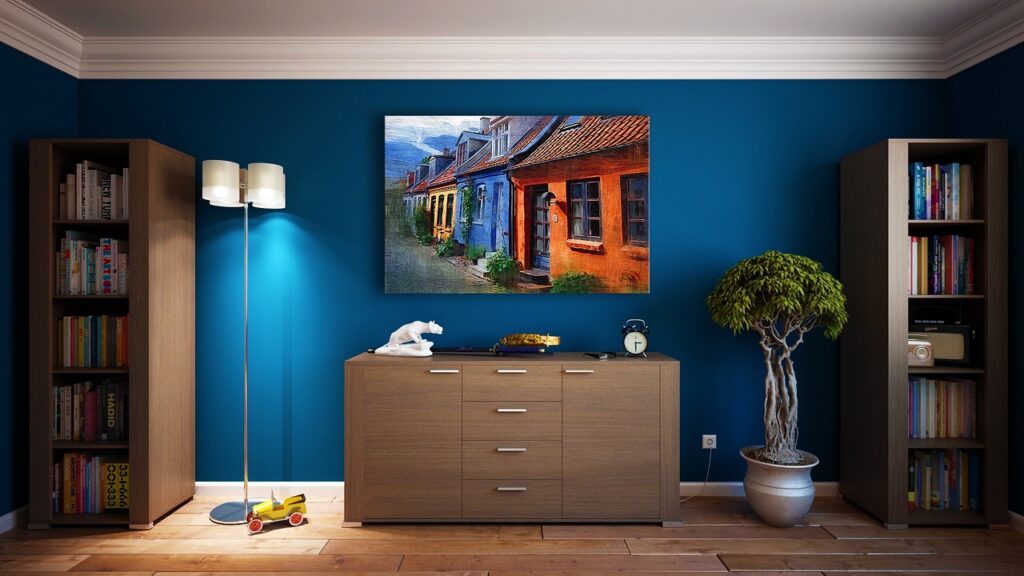Interior design is much more than just having a home that’s easy on the eye. Great design needs to be functional, pragmatic, and liveable. Because of the time we spend in our homes, it has a huge influence on our health. It’s the air we breathe when sleeping, the furniture we sit on for hours in the evening, and the space we perpetually navigate. So with that in mind, below are 5 ways that interior design can have an impact on your health.

Humidity, air, and mold
This is the most obscure of the five, but because of this it often goes neglected. Poor indoor air quality can lead to a variety of issues, such as headaches, fatigue, respiratory issues, and allergies. Clean air can make us feel better, and it’s not that hard to achieve, even in some older buildings.
Some basics that you must have are a bathroom extractor fan to prevent steam and mold build-up, along with a de-humidifier and adequate ventilation. Opening windows can be a quick fix, but it leads to other issues like heating costs. Plus, this isn’t ideal for those that live in cities with bad air quality.
Light
Exposure to natural light has been shown to have numerous health benefits, including improving mood, regulating sleep patterns, and boosting vitamin D levels. When designing your space, it’s important to consider how you can maximize natural light. Ideally, you will have large windows, a skylight, and bi-folding backdoors. But, if this isn’t within budget, read for a SAD bright light, choose warm colors for lamps, and have smart curtains that draw at a scheduled time.
Ergonomic furniture
If you spend a significant amount of time sitting at a desk or using a computer, investing in ergonomic furniture can be a game-changer for your health. Ergonomic chairs, desks, and keyboards are designed to support your body and reduce the risk of pain and injury.
It’s not just about office setups though, it can be sofas, kitchen chairs, and your bed. When choosing ergonomic furniture, be sure to select pieces that are adjustable to fit your body and allow for proper posture. Customization is the goal.
Indoor plants
Another way to boost clean air into your home and make your feel better is by increasing the oxygen levels. Indoor plants are the best way to do this as it’s natural and low-cost. But studies show that indoor plants boost air quality, but it’s they have other benefits too. Caring for the plants can help decrease stress, and simply seeing them can make a place feel more in touch with nature and less sterile.
Organization
Finally, stress is one of the biggest causes of later health issues, and we can tackle this through the way our home is designed. Clutter is a huge factor, but some homes clutter easier than others. Make sure you have plenty of storage space when designing a room, and you can be smart about this by having hidden storage in a place like under each step on the stairs. Very minimal homes can help with stress, but don’t be unrealistic about how spotless you can keep it – make sure that everything has a designated place to make cleaning easier.

